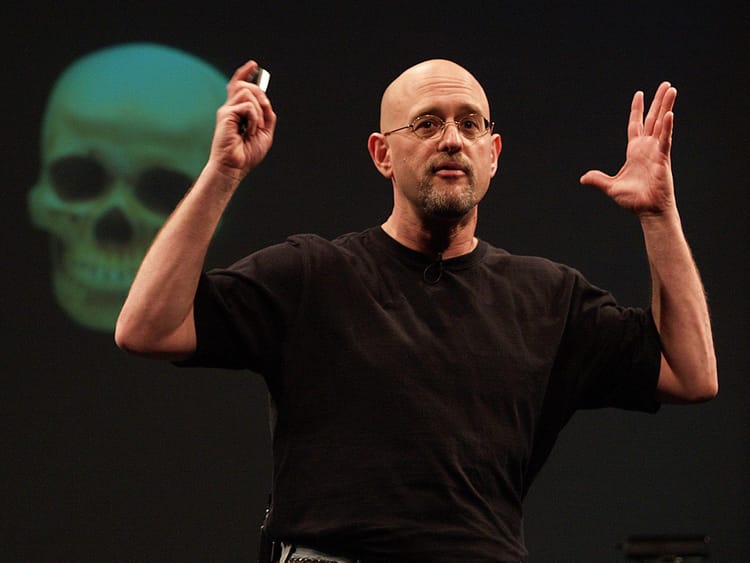“The Surprising Science of Happiness” by Dan Gilbert
• public
Table of contents
Dan Gilbert delves into the surprising science of happiness and challenges common misconceptions about what truly makes us happy. He explains that our happiness is not necessarily determined by external circumstances but rather by our perception and ability to adapt. Gilbert suggests that our minds have a remarkable capacity to synthesize happiness and that we can find joy and satisfaction even in unexpected circumstances by adjusting our mindset.
For Key Ideas, Questions and Quotes from this talk, you can scroll below.
Dan Gilbert gave this talk at the TED Conference. All rights to the talk and the video above belong to TED.
About Dan Gilbert
Daniel Todd Gilbert is an American social psychologist and writer. He is the Edgar Pierce Professor of Psychology at Harvard University and is known for his research with Timothy Wilson of the University of Virginia on affective forecasting. (Source: Wikipedia)
Key Ideas From Talk
Dan Gilbert's speech is one of the most watched talks on TED. One evening, after leaving work at around ten, I was feeling pretty tired. I decided to go to a restaurant and place an order. While waiting, I watched a TED talk and thought to myself that I should do something for myself that day. Naturally, I was drawn to Dan Gilbert's "The Surprising Science of Happiness" talk, as I was feeling unhappy at the time. I started watching it, and it was very good.
In this speech, Dan Gilbert provides a different perspective on happiness and other feelings and thoughts. He argues that our perceptions are heavily influenced by our points of view, and supports this claim with numerous scientific experiments. However, the most impactful part of the speech is the conclusion, which ties everything together in a meaningful way. Specifically, the following parts left a strong impression on me:
- "Synthetic Happiness": Gilbert explains that our ability to create happiness is much greater than we think. Our minds have a psychological immune system that can help us find happiness even in less-than-ideal circumstances.
- "Impact Bias": Gilbert discusses how we tend to overestimate the impact of both positive and negative events on our happiness. We mistakenly believe that achieving certain goals or acquiring certain possessions will bring us everlasting happiness, when in reality, our happiness tends to adapt and normalize over time.
- "Present Moment Bias": Gilbert highlights our tendency to place greater emphasis on our current emotional state when making decisions. We often underestimate our ability to adapt to different situations and overestimate the influence of our current feelings on our future happiness.
- "Choice and Happiness": Gilbert challenges the idea that more choices always lead to greater happiness. He explains that having too many options can actually increase anxiety and dissatisfaction, as we constantly question whether we made the right choice.
- "Impact of Social Connections": Gilbert emphasizes the importance of social relationships and human connections in our overall happiness. Strong social ties and meaningful relationships have a significant impact on our well-being and life satisfaction.
Questions to Ask Ourselves
- How much weight am I giving to external circumstances in determining my happiness? Am I overly focused on achieving certain goals or acquiring specific things as sources of happiness?
- Am I falling into the "impact bias" trap, where I overestimate the long-term impact of positive or negative events on my happiness? How can I remind myself that my happiness tends to adapt and normalize over time?
- Do I tend to make decisions based on my present emotions and feelings? How can I better consider the long-term consequences and potential for adaptation when making important choices?
- Am I overwhelmed by too many choices in my life? How can I simplify my decision-making process and reduce the anxiety associated with excessive options?
- How strong are my social connections and relationships? Do I prioritize nurturing and maintaining meaningful connections with others? How can I invest more in my social interactions to enhance my overall happiness?
Notes From Talk
Related List and Guide
This talk is a part of following list: "Talks That Changed My Perspective".
